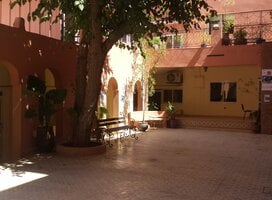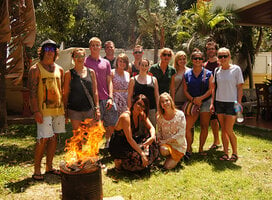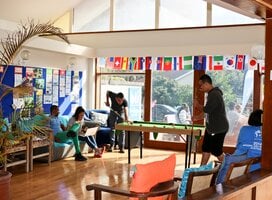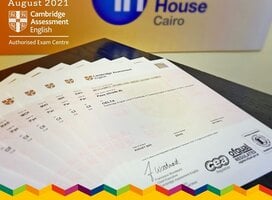TEFL Courses in Africa
Africa is a vast continent with an incredible array of people, cultures, languages, and landscapes. Within this region, you can enjoy activities ranging from trekking on a camel around the great pyramids in Egypt to exploring a modern art gallery in Nigeria to viewing native penguins from a boat in South Africa. Ask anyone who has spent time in Africa, but in any country you visit, you're guaranteed to be amazed.
These experiences and more can await you when you pursue your TEFL certification in Africa. From the Sahara desert to the Serengeti, from small villages to vibrant cities, Africa will astonish you at every moment. With great cuisine, friendly people, and adventure at every turn, Africa is a fantastic place to begin your journey of teaching English abroad.
120-Hour TEFL Courses
The 120-hour TEFL course format is the most common, in Africa (and around the world). Typically, 120-hour TEFL courses are conducted completely on-site, but they can also be a combination classes with online coursework and in-person supervised practice teaching.
Classes that are completely on-site can be more intensely scheduled, usually in a four-week block, while combination classes can give a little bit more scheduling flexibility. Classes can vary quite a bit in terms of how much support they give with finding housing and organizing social activities. If you're considering a 120-hour TEFL course, it helps to read reviews from past teachers to get a sense for the value and quality of education they received.
TEFL + Teach
TEFL + Teach programs are an excellent option for anyone looking to kick-start their career. These combined TEFL course and teacher placement programs typically take place during an intensive four-week 'block,' and they can be invaluable if you plan to teach in the same country where you complete your training. Many but not all TEFL + Teach programs include accommodation, social activities, and basic lessons in the local language as well. These types of classes are the least common option throughout Africa, but there are a few providers if this is the right TEFL course type for you.
CELTA
This is one specific type of English teaching certification that's accredited through the University of Cambridge in England, and it’s generally considered equivalent to the TEFL/ TESOL. It usually is conducted in a 4-week block intensive (though there are occasionally extended versions of the classes that take place over 16 weeks). The only place to take a CELTA class on the African continent is currently Cape Town, South Africa.
Popular Destinations for TEFL Courses in Africa
South Africa is hands-down the most popular destination for TEFL courses in Africa, but it’s far from being the only option. Egypt, Morocco, and Nigeria all have great options for obtaining your TEFL certification.
Most English teaching certification classes take place in the larger cities in the region, including Cairo and Alexandria in Egypt, Marrakech in Morocco, Cape Town in South Africa, and Lagos in Nigeria. This means that whatever country you choose, you’ll have modern amenities as well as access to all the best that the country has to offer!
Average Salary for Teaching Jobs in Africa
Salaries for teaching English in Africa can vary, but they’re generally commensurate with cost of living. In most cases you’ll be making enough to live quite comfortably in the country where you’re working. In some cases you might end up with extra take-home pay to boost your savings, but this shouldn’t be expected for this region.















